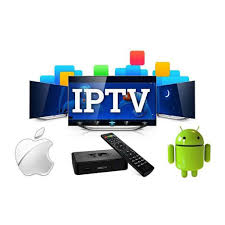IPTV (Internet Protocol Television) is a type of digital television broadcasting system that provides television programming over the internet instead of traditional satellite, terrestrial or cable formats. As technology continues to advance, IPTV subscriptions have gained popularity, offering an easier and more flexible, and frequently cost-effective alternative to conventional television services. This is a complete guide to understanding iptv subscription .
What is IPTV?
IPTV is an acronym in for Internet Protocol Television, a service that broadcasts television via the internet. Unlike traditional broadcasting methods that transmit content through radio waves or satellite signals, IPTV uses the internet’s protocol suite (IP) to deliver the digital TV service. The result is that viewers can stream their favourite TV shows, movies, as well as live events, via their internet connection, often with the ability to pause, rewind or even record the content.
How Does IPTV Work?
IPTV operates by transmitting video and audio data as packets of information via the internet. When you sign up for an IPTV service and the content is then delivered to your device via an IPTV server. The content is accessible using various devices, including smart TVs, smartphones, tablets, and computers. The content is also delivered through a set-top box (STB) that is connected to a television.
Types of IPTV Services
IPTV services are generally categorized into three types:
Live Television: It’s like traditional broadcasting where content is streamed in real-time as it airs. It’s popular for watching live sports, news and other sporting kinds of events.
Video on Demand (VoD) with VoD, users can pick and stream the content of a huge library of films, TV shows, and more at their leisure. It’s similar to streaming services like Netflix and Hulu.
Time-Shifted Media: This enables viewers to watch previously aired TV shows and events, usually within a specified time period. Catch-up TV is a popular form of time-shifted media.
Benefits of IPTV
One of the main advantages for IPTV is its flexibility. In contrast to traditional TV, IPTV allows users to view content on a variety of devices at any time provided they are connected to the internet. This flexibility, combined with features like video on demand and the ability to pause or slow down live TV is what makes IPTV a highly attractive option.
Another benefit is the cost. IPTV subscriptions are usually less expensive than satellite or cable packages, providing a variety of services and channels without the need for expensive equipment or installation costs.
Choosing the Right IPTV Subscription
When selecting when choosing an IPTV subscription, take into consideration factors such as the availability of channels, streaming quality as well as customer service. Certain IPTV providers have numerous channels, including international channels, while other may concentrate on specific regions or specific types of content. It’s essential to ensure that the provider offers a stable service that has minimal buffering and streaming in high-definition.
Legal Considerations
It’s crucial to be aware of the legality of IPTV services. While a lot of legitimate IPTV providers exist, offering licensed content, some services operate in a gray zone or give the ability to access pirated material. Make sure to choose reputable IPTV providers to stay clear of any legal problems.
Conclusion
iptv subscription (abonnement iptv) are a contemporary, flexible, and cost-effective alternative to traditional television services. With various options available such as live TV or streaming content, IPTV is becoming increasingly well-liked by consumers. But, it’s important to select a reputable service provider and make sure the service is legal to enjoy the full benefits of this technology.



